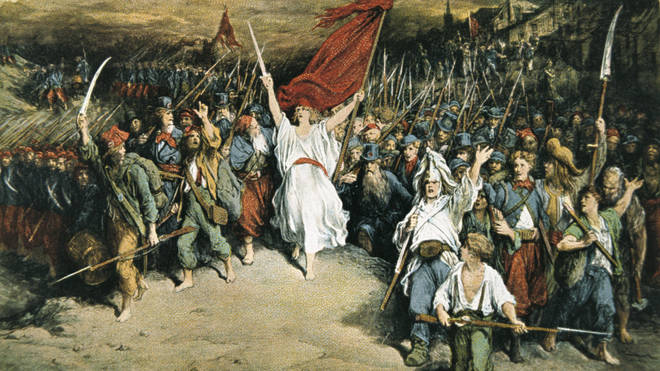La Marseillaise
elysee.fr/la-presidence/la-marseillaise-de-rouget-de-lisle
"La
Marseillaise" is the national anthem of France. The song was written in
1792 by Claude Joseph Rouget de Lisle in Strasbourg after the
declaration of war by France against Austria, and was originally titled
"Chant de guerre pour l'Armée du Rhin".Wikipedia
Also known as:Chant de Guerre pour l'Armée du Rhin,
English: War song for the Army of the Rhine
English: War song for the Army of the Rhine
Lyrics:Claude Joseph Rouget de Lisle, 1792
Music:Claude Joseph Rouget de Lisle
Allons enfants de la Patrie
Le jour de gloire est arrivé!
Contre nous de la tyrannie
L’étendard sanglant est levé
L’étendard sanglant est levé
Entendez-vous dans les campagnes
Mugir ces féroces soldats?
Ils viennent jusque dans vos bras
Égorger vos fils, vos compagnes!
Aux armes, citoyens
Formez vos bataillons
Marchons, marchons!
Qu’un sang impur
Abreuve nos sillons!
=====
It acquired its nickname, ‘La Marseillaise’, when it was sung on the streets of Paris by volunteers from Marseille, who had marched to the capital. The song was officially named as the French National Anthem in 1795 – and it quickly became the rallying call to the French Revolution.

What are the lyrics to La Marseillaise?
Bearing in mind that the lyrics reflect the invasion of France by Prussian and Austrian armies, the text is pretty violent. The full version features seven verses – but at most sporting events, teams tend to sing just the first verse and chorus:Allons enfants de la Patrie
Le jour de gloire est arrivé!
Contre nous de la tyrannie
L’étendard sanglant est levé
L’étendard sanglant est levé
Entendez-vous dans les campagnes
Mugir ces féroces soldats?
Ils viennent jusque dans vos bras
Égorger vos fils, vos compagnes!
Aux armes, citoyens
Formez vos bataillons
Marchons, marchons!
Qu’un sang impur
Abreuve nos sillons!
No comments:
Post a Comment